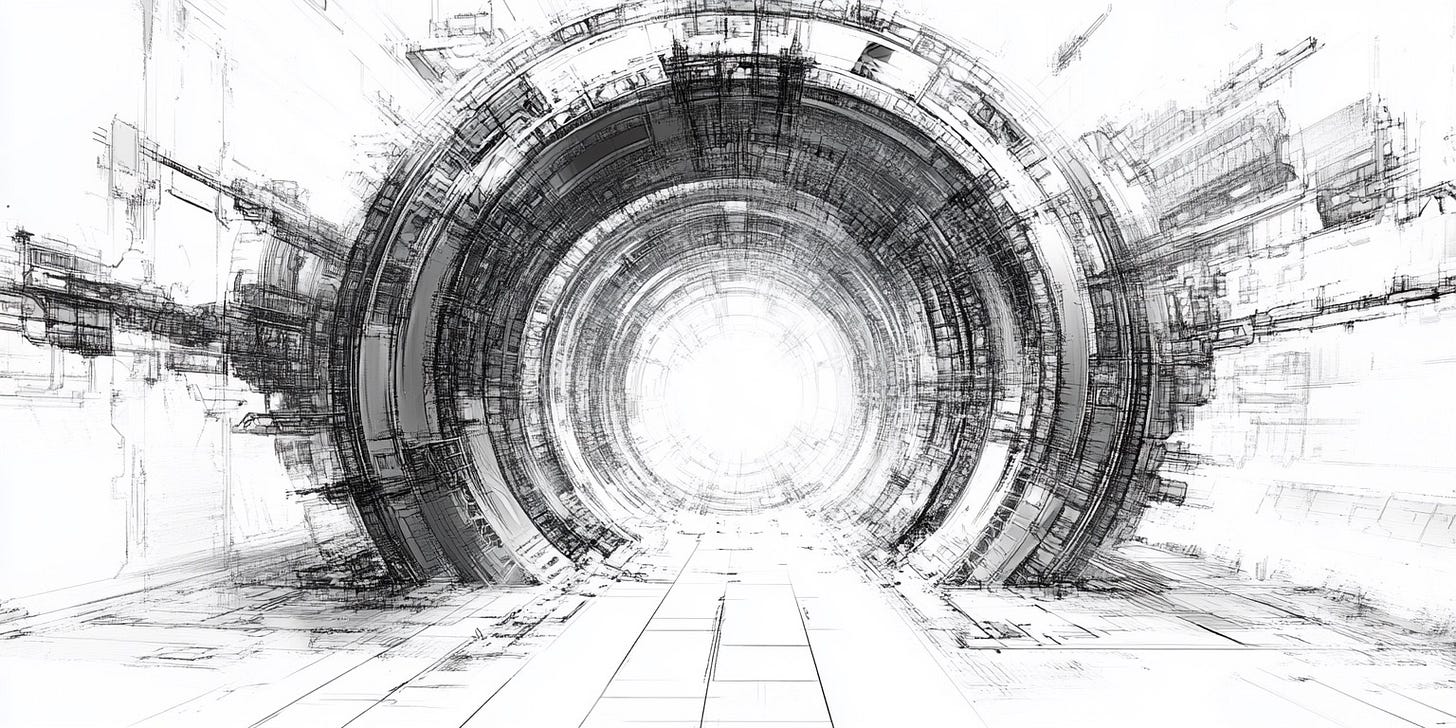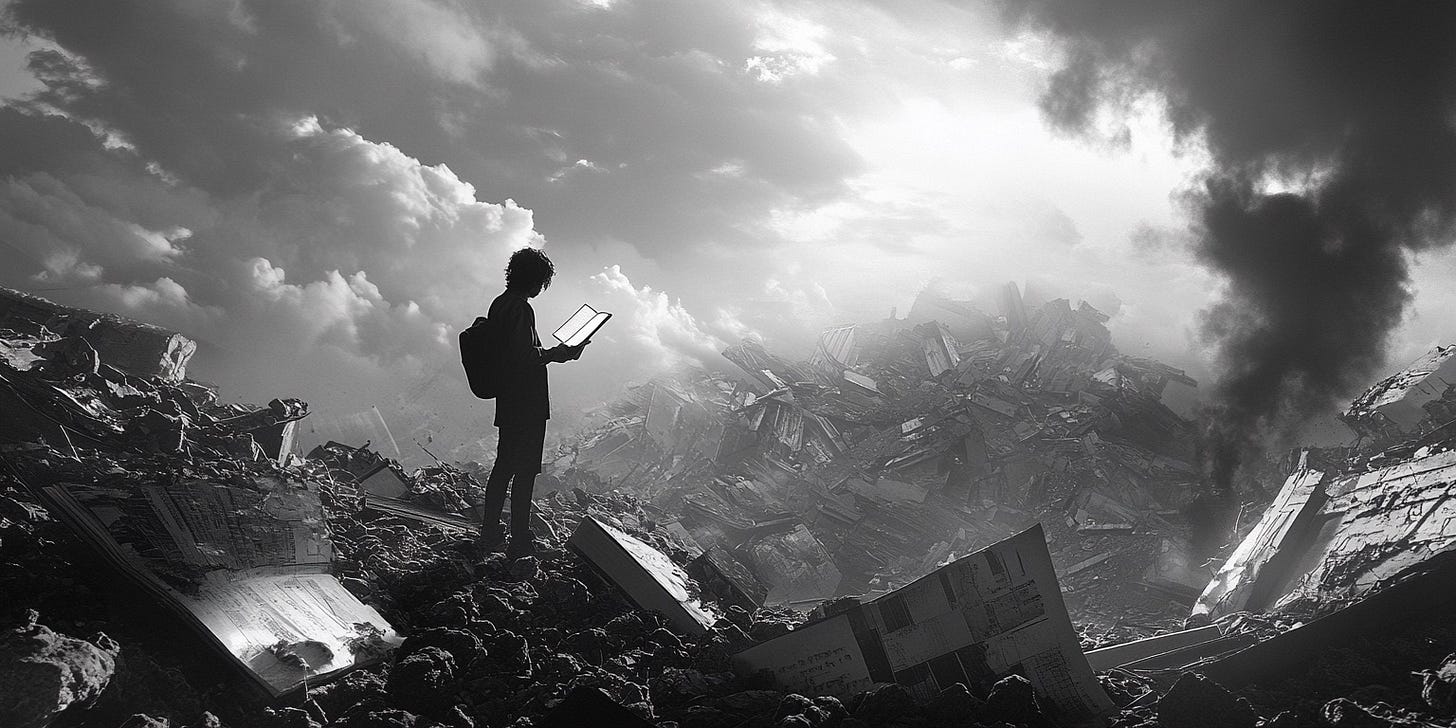AI Roundup 102: The Stargate Project
January 24, 2024.
The Stargate Project
OpenAI, SoftBank, and Oracle announced The Stargate Project, a massive joint venture to build multiple AI data centers across the US, with commitments of up to $500B over four years, and $100B immediately.
The big picture:
The scale of the project is gargantuan. Even adjusted for inflation, that's larger than the Manhattan Project and the Apollo Project combined.
But there are already questions of where the money will come from, as the named parties seem unlikely to have $100B in cash lying around.
The announcement, which happened at the White House, is an early win for President Trump - despite the fact that it won't be funded with taxpayer dollars.
And after months of rumored tensions with Microsoft over compute capacity, OpenAI is no longer exclusively bound to the tech giant, and may be looking to use Stargate for its own ends.
Elsewhere in OpenAI:
The company revealed Operator, a browser-based agent powered by a new Computer-Using Agent (CUA) model, available as a research preview to ChatGPT Pro subscribers.
Sources indicate OpenAI is developing an advanced AI coding assistant that can match a Level 6 engineer's capabilities.
And the company has increased its lobbying spending to $1.76M in 2024, up from $260K in 2023.
Elsewhere in AI geopolitics:
The US Commerce Department confirms export controls have successfully impeded China's progress in AI chip development.
The CIA is using AI chatbots to create virtual versions of foreign leaders for behavior prediction.
A study reveals Chinese and US researchers have produced 46,000 collaborative papers on AI over the last decade.
And Trump revokes Biden's 2023 AI executive order that was designed to reduce AI safety risks, while signing his own EO designed to reduce AI "ideological bias".
Reasoning wars
Chinese AI company DeepSeek released R1, a new open-weight reasoning model that's competitive with o1 on math and coding benchmarks.
Why it matters:
There are three main reasons why DeepSeek is getting so much attention: benchmark scores, research notes, and the fact that it was developed in China.
And if that weren't enough, two other Chinese AI labs have released models that claim to be competitive with o1 - Kimi's k1.5 and ByteDance's Doubao-1.5-pro.
China's rapid progress - particularly DeepSeek's ability to train state-of-the-art models on a shoestring budget - is cause for concern among leading US labs, like OpenAI and Meta.
Elsewhere in frontier models:
Anthropic introduced Citations, a new API feature that allows developers to ground Claude 3.5's answers in source documents.
Hugging Face released SmolVLM models capable of analyzing images and videos on devices with less than 1GB of RAM.
Tencent's new Hunyuan3D 2.0 system can convert single images or text prompts into 3D models within seconds.
And OpenAI developed GPT-4b micro, an AI model designed to engineer proteins that can transform regular cells into stem cells.
Humanity's Last Exam
The Center for AI Safety and Scale AI released a new benchmark, "Humanity's Last Exam. " It claims to be the hardest test ever given to AI systems.
Between the lines:
The name seems tongue-in-cheek, but the problem is very real. We're facing a problem of "benchmark saturation" - AI models are so advanced that existing benchmarks don't meaningfully grade their capabilities.
Even ARC-AGI, an "abstract reasoning" test for AI models, saw performance go from 5% with GPT-4o to 88% with o3 in less than a year.
This inability to properly measure AI performance raises serious questions about tracking and understanding AI as it surpasses human-level performance.
Elsewhere in AI anxiety:
The former CEO of AI chatbot startup GameOn and his wife face charges for allegedly defrauding investors of more than $60M over six years.
Stanford professor Mark Lemley discusses his decision to quit representing Meta in an AI copyright case.
Six workers have filed a lawsuit against Scale AI, claiming they were forced to write disturbing prompts about violence and abuse on the Outlier platform.
And Meta's Mark Zuckerberg "loved" a viral AI-generated "Challah Horse" image that was originally created as criticism of Facebook's AI output quality.
Things happen
Non-Western nations are welcoming major AI companies with open arms. Perplexity debuts Sonar, an API for AI search. Huawei challenges Nvidia in China's AI chip market. A top AI company may soon unveil a breakthrough in AI super-agents. Privacy implications of AI interfacing with E2EE systems. Character.AI is testing games on its web apps. Google invests $1B+ more in Anthropic. Metacognitive laziness: Effects of generative AI on learning motivation. Perplexity AI submits bid to merge with TikTok. AI isn't going to kill the software industry. The AI bubble is bursting. Google's Gemini gets multi-app capabilities on Galaxy S25. Anthropic chief says AI could surpass almost all humans shortly after 2027. Consumer spending on AI apps grew 200% YoY to nearly $1.1B in 2024. ByteDance plans to spend ~$5.5B on AI chips in China in 2025. Perplexity launches Assistant for Android. Samsung banks on a hybrid AI strategy. Google gave Israel access to its latest AI tools. Grindr debuts AI chat summary and tests "Wingman". A look at the UK's AI Safety Institute. Developer creates infinite maze to trap AI bots.








